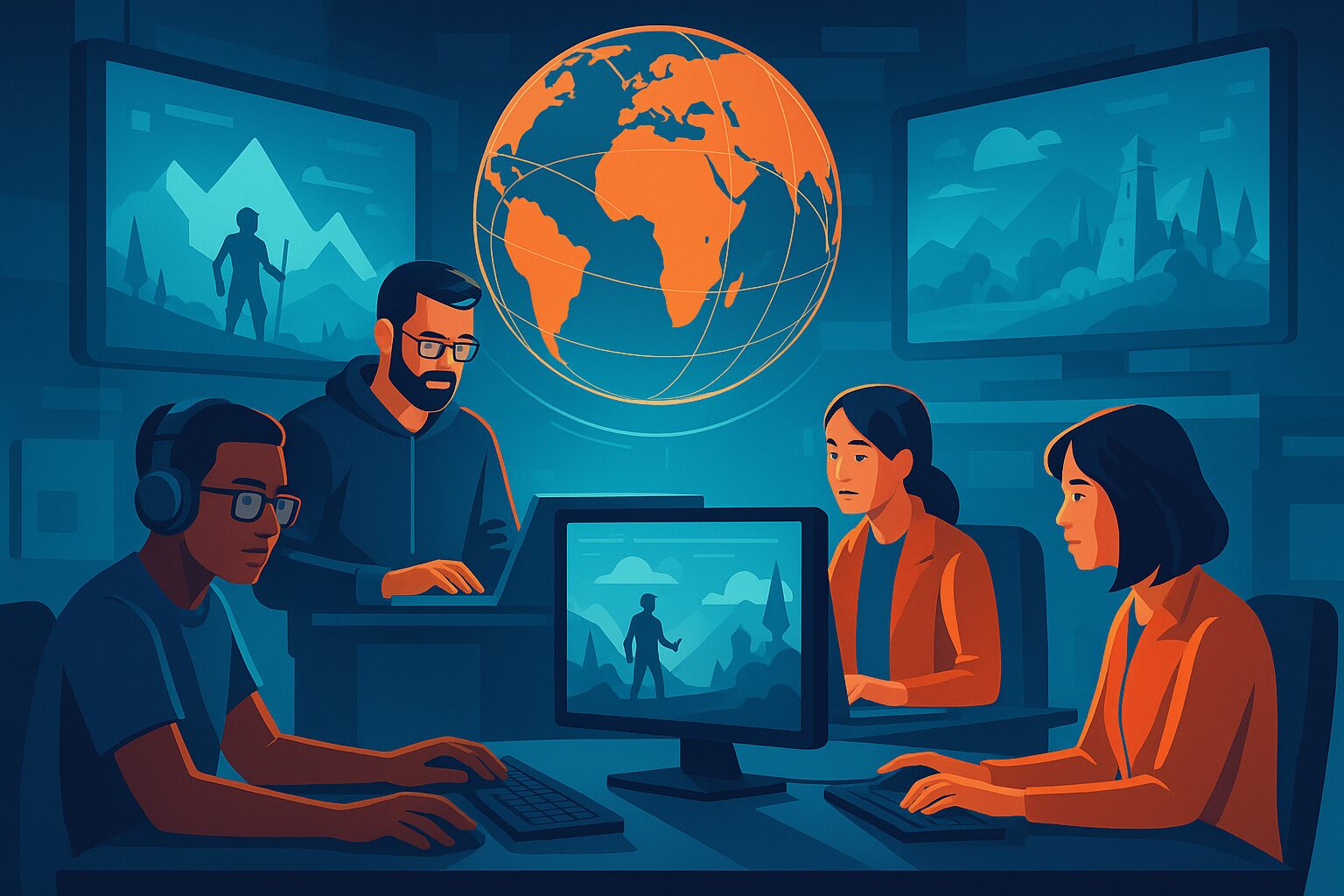The video game industry has evolved into one of the largest entertainment markets in the world, surpassing even film and music in revenue. With growing player expectations and constant technological innovation, creating a high-quality game is more complex than ever. To stay competitive, studios are increasingly turning to game development outsourcing companies – specialized partners that provide the expertise, scalability, and efficiency needed to bring games to life faster and at lower cost.
Outsourcing is no longer just a cost-saving measure. It has become a strategic approach that allows developers to focus on creativity, innovation, and player experience while external experts handle technical and production challenges.
Why Game Development Outsourcing Has Become a Global Standard
Modern games require multidisciplinary teams – artists, programmers, designers, writers, sound engineers, and QA testers – all working in harmony. Managing such large teams internally can be costly and time-consuming. Outsourcing solves this by giving studios on-demand access to global specialists without expanding permanent staff.
Many game development outsourcing companies operate across multiple time zones, allowing projects to move forward 24/7. This “follow-the-sun” model ensures faster turnaround and more efficient use of resources, ultimately shortening the time to market.
Key Benefits of Working with Game Development Outsourcing Companies
1. Cost Efficiency
Hiring full-time staff requires significant investment – salaries, benefits, office space, software licenses, and hardware. Outsourcing reduces these costs drastically, as studios pay only for specific services or project phases.
2. Access to Global Talent
Outsourcing opens the door to a worldwide network of professionals experienced in major engines like Unity, Unreal Engine, and CryEngine. These experts bring unique artistic styles and technical insights that enhance a game’s quality and originality.
3. Faster Time to Market
Game production cycles are long and complex. By outsourcing art, programming, or testing tasks, studios can parallelize workflows, speeding up development and enabling faster releases.
4. Flexibility and Scalability
Development needs vary across a project’s lifecycle. During peak phases such as asset creation or bug fixing, studios can quickly scale teams up. When workloads decrease, they can scale back down – all without the burden of permanent contracts.
5. Focus on Core Competencies
By partnering with game development outsourcing companies, studios can dedicate more time to storytelling, design innovation, and marketing strategy, leaving technical execution to experts.
What Services Do Game Development Outsourcing Companies Offer?
Outsourcing firms typically specialize in one or more areas of the production pipeline. Here are the most common services:
- Full-Cycle Development: Handling the entire process from concept to launch, including design, coding, art, testing, and post-release support.
- Art and Asset Production: Creating high-quality 2D and 3D characters, environments, animations, and visual effects.
- Programming and Engineering: Providing gameplay mechanics, AI behavior, physics systems, and back-end architecture.
- Quality Assurance (QA): Testing for functionality, performance, and compatibility across platforms.
- Game Porting: Adapting games for new devices such as consoles, mobile platforms, or VR headsets.
- Sound Design and Voice Acting: Producing immersive soundscapes, music, and localized dialogue.
Each of these services can be customized, allowing studios to outsource only what they need.
Choosing the Right Outsourcing Partner
Selecting the right partner is critical for project success. Here’s what to look for:
- Portfolio and Experience: Review the company’s previous work to ensure they have experience in your genre or platform.
- Technical Expertise: Confirm familiarity with your preferred engine, pipeline, and toolset.
- Communication and Collaboration: Choose a partner that values transparency and provides regular updates.
- Security and IP Protection: Ensure the company follows strict confidentiality agreements and data protection standards.
- Cultural Compatibility: A shared understanding of creative goals and workflow styles is key to smooth collaboration.
The best game development outsourcing companies act as extensions of your internal team, maintaining your creative vision while providing technical excellence.
Potential Challenges and How to Overcome Them
While outsourcing offers many advantages, it also comes with challenges like time-zone differences, communication barriers, and creative misalignment. To mitigate these risks, establish clear milestones, maintain frequent communication, and use reliable project management tools (e.g., Jira, Trello, or Asana). It’s also important to start with a smaller project or prototype to evaluate the partner’s capabilities before committing to long-term collaboration.
The Future of Game Development Outsourcing
As game production continues to grow in scale and complexity, outsourcing will become an even more integral part of the process. Technologies like AI, cloud collaboration, and real-time rendering are making global teamwork smoother and more efficient.
Studios will continue to rely on game development outsourcing companies not just for cost savings, but as true creative partners who contribute to innovation and storytelling. From small indie projects to blockbuster franchises, outsourcing helps developers focus on what truly matters – building engaging, unforgettable player experiences.
